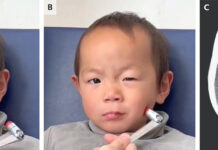Bath-related deaths are more frequent in Japan. The exact aetiology still remains unknown.
For many, a shower by the end of the day is a must to be refreshed. For others, taking a bath first in the morning kickstarts the day. Unlike Europeans and Americans, the Japanese prefer to soak in standing water on a daily basis. However, the rates of sudden death in the bathtub are relatively higher in Japan. The bath-related deaths are especially higher among elderly individuals. Moreover, the actual number of bath-related deaths is even higher than the official number. This is because many of the bath-related deaths have been attributed to sudden causes, including ischemic heart diseases on official documentation.
The exact etiology of these bath-related deaths remains unknown. There is a paucity of literature regarding autopsied cases of bath-related deaths. However, a study showed that these deaths were more in the winters, possibly due to a rapid temperature change that the body goes through between the dressing room and the warm/hot bathwater. This change in body temperature is a critical factor that can induce sudden death, especially in the elderly.
In general, the Japanese death investigation system usually does not order a post-mortem for bath-related deaths.
A study in Tokyo:
A study in Tokyo, Japan, investigated many autopsied bath-related deaths. 90% of the deaths were in individuals above 60 years of age, in both sexes, with mortality increasing with age. However, mortality rates in males were significantly higher than in females in all age groups aged ≥60. Moreover, most of these deaths took place in the deceased’s own residence (94.3%; Table Table22).
The study also confirmed that the bath-related deaths were 6.9 times more in winters than summers.
The majority of the autopsied cases showed signs of water inhalation. More than half of the pathological findings revealed circulatory system diseases, including coronary artery stenosis, cardiomegaly, and cerebral arteries’ atherosclerosis.
Non-circulatory system pathologies included central nervous system diseases, infections, metabolic disturbances, psychotropic drug poisoning, and acute intracranial injury.
Approximately one-third of the cases showed no significant pathological findings.
Additionally, the study also revealed that > one-fourth of these deaths were preventable. It should be highlighted that intoxicated or severely ill people should not bathe. Moreover, caretakers or family members should pay special attention to older adults with circulatory diseases during bathing, especially in winters.
In a nutshell, the most common underlying etiology was an unexpected heart attack; however, drowning may play a crucial role in the final process of bath-related sudden death. It is imperative to be careful with elderly people having circulatory diseases, especially when they bathe in winters. Moreover, severely ill patients should not bathe unattended/without any supervision.
Source: Suzuki H, Hikiji W, Tanifuji T, Abe N, Fukunaga T. Characteristics of sudden bath-related death investigated by medical examiners in Tokyo, Japan. J Epidemiol. 2015;25(2):126-132. doi:10.2188/jea.JE20140068




